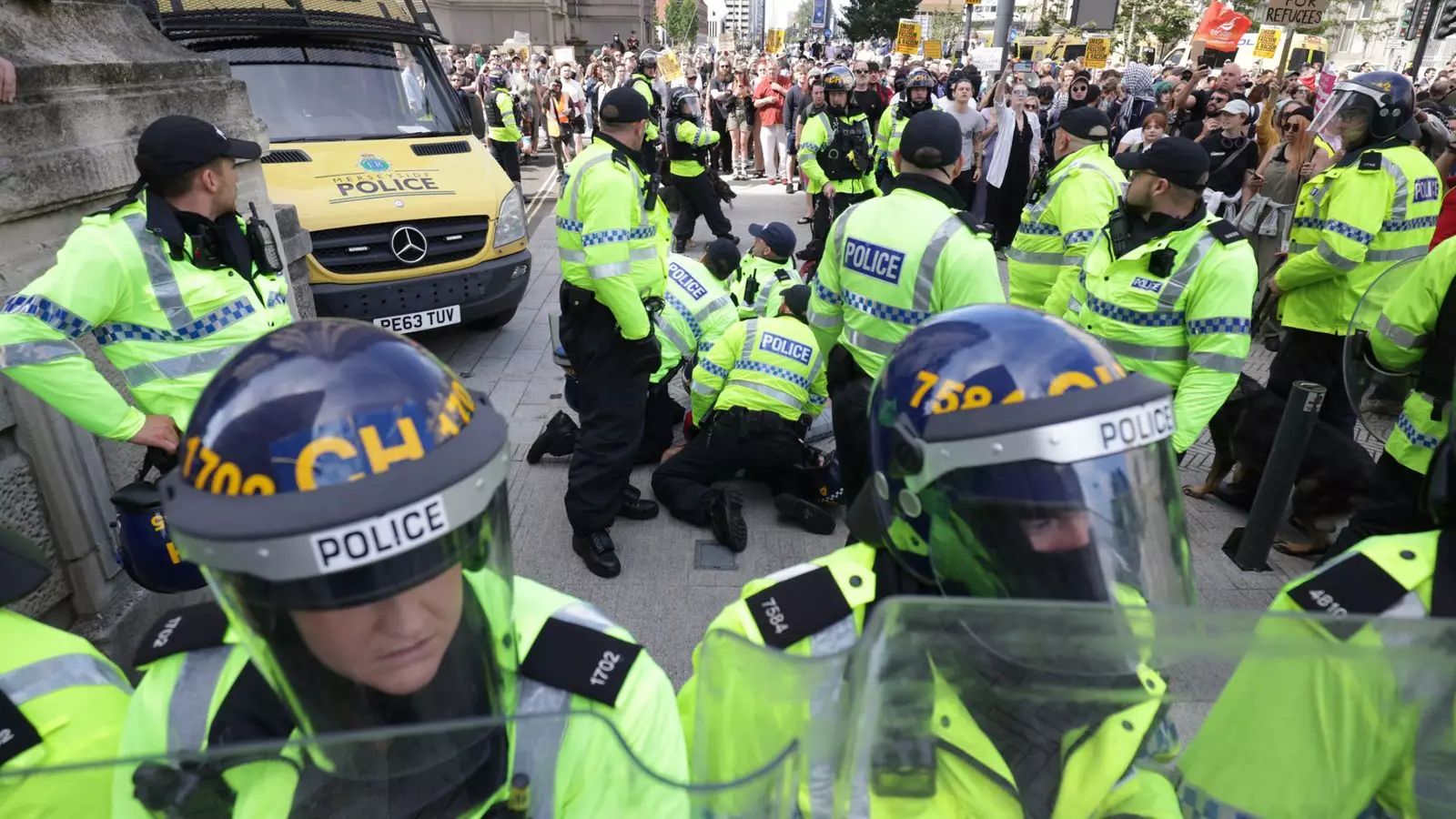In a country grappling with escalating violence and disorder, the UK government is taking a firm stance, vowing to implement robust measures to tackle criminal activity. Recent events have underscored the urgent need for effective responses to disturbances that disrupt public peace and safety, prompting officials to declare a commitment to rapid judicial processes, even extending to the operation of courts overnight. This proactive approach seeks to ensure that those responsible for civil unrest face swift justice, resonating with the government’s broader objective of safeguarding its citizens.
The backdrop of this unrest includes a concerning rise in far-right activism, capitalizing on societal tensions. Government adviser on political violence, Lord Walney, has pointed out that far-right factions may be receiving support from hostile foreign entities. This transnational element complicates the narrative, suggesting that disinformation campaigns are being orchestrated to further inflame local disputes. By intertwining real grievances with fabricated narratives, these groups threaten to undermine societal unity and exacerbate divisions.
Minister for Policing, Dame Diana Johnson, has been vocal about the government’s resolve. In interviews, she emphasized the necessity of having adequate resources to manage the processing of arrests effectively. The Prime Minister’s past experience as the Director of Public Prosecutions during the 2011 riots lends credence to the government’s seriousness in addressing criminal behaviors. Johnson’s assertion that the government will take whatever measures necessary underscores a no-nonsense attitude aimed at discouraging public disorder.
Furthermore, Johnson’s assertion reflects a broader concern among officials regarding public safety. People, particularly those from minority communities, must feel secure in their environments. This sentiment resonates deeply in the wake of violence that has impacted various neighborhoods. The emphasis on prison capacity indicates a readiness to enforce the law rigorously, reinforcing the message that criminality will not be tolerated.
Compounding the situation is the role of misinformation, especially as it pertains to the recent tragic events in Southport. Following the fatal stabbing of three young girls, extremist narratives were propagated by far-right activists. These narratives twisted the circumstances surrounding the incident, which was then further inflamed by misinformation campaigns purportedly supported by foreign interference. The dangers posed by social media in this context are manifold; the rapid dissemination of false information can easily incite violence by pitting communities against one another based on fabricated claims.
Lord Walney’s warnings highlight the necessity for government action against these disinformation campaigns. He advocates for enhanced intelligence operations targeting entities that exploit social media platforms to mislead and incite. The insight into the existence of “troll factories”– organized groups that create divisive content—reinforces the urgency of this situation. It reveals a new battleground, one where ideological warfare is now fought not just on the streets but virtually, necessitating a multifaceted response.
The ongoing violence has prompted a unified response from various branches of the government, including law enforcement. Home Secretary Yvette Cooper’s assertion that those who partook in the violent clashes “will pay the price” reflects a commitment to maintaining order. The synergy between law enforcement and the justice system is critical; Justice Secretary Shabana Mahmood has echoed this sentiment by asserting that the justice system is prepared to facilitate rapid convictions for those arrested.
This coordinated approach seeks to project a government that is not merely reactive but proactive in its ability to manage civil unrest. The emphasis on legal accountability serves a dual purpose: it addresses immediate public safety concerns while also working to restore trust in the democratic processes that underpin the nation.
The situation in the UK is a reminder of the fragile balance between civil liberties and the need for effective governance in times of crisis. As the government braces for potential further unrest, the measures being pursued—ranging from swift judicial proceedings to combating misinformation—will be pivotal in shaping the public’s perception of safety and justice. Moving forward, the collaboration between government bodies and proactive strategies against misinformation will define not only the immediate response to the current violence but also the long-term health of UK society. Addressing these multifaceted challenges head-on is imperative if the UK is to foster an environment where communities can feel secure and united, free from the shadows of disorder.


Leave a Reply